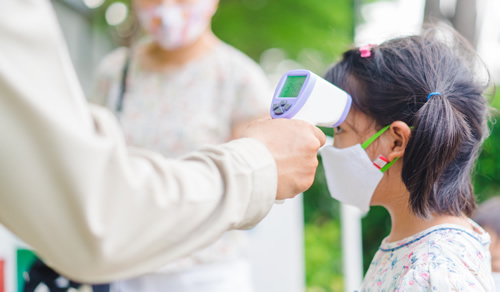School mental health supports are a pathway to equity
The Jed Foundation’s director of high school implementation writes school mental health work must include a focus on systemic change.
Wenimo Okoya is director of high school implementation at the Jed Foundation, a nonprofit focused on emotional health and suicide prevention for teens and young adults.
When I entered education 12 years ago, I was teaching 7th- and 8th-graders in Newark, New Jersey. I thought the focus of my career would be around strengthening my pedagogical skills so I could provide the support my students needed to get ahead. As a Black woman and child of West Indian and West African immigrants, I have long seen education as a pathway to social mobility. But my understanding of what that meant was shallow.
I was trained to “manage” student behavior and to respond to the issues that were above the surface. I worked with incredible students and families who were struggling to overcome the circumstances that continue to plague their communities: generations of disinvestment. As you can imagine, many of my students lived among frequent community violence and were exposed to other types of traumatic experiences. The expectation was that academics came first and then student emotional support if it got in the way of learning.
As my 8th-graders graduated and headed into high school, I feared what I was doing was not enough to prepare them, and now I have seen data that affirms this hunch. Between 2016 and 2019, teen suicide increased 25% for adolescents between the ages of 15 and 19, according to data retrieved using CDC Wonder. These stats are an echoing alarm for schools to better equip these young people and intervene to address their challenges.
At The Jed Foundation (JED), we conducted a study in the fall of 2019 with 451 U.S. high school administrators and 1,014 U.S. high school students in grades 9 to 12, and their parents. We found both administrators and parents agree families expect schools to address student mental health and emotional well-being, yet most administrators and parents agree schools are ill-equipped to treat student mental and emotional health issues.
Our study also found nearly all administrators believe in the importance of a comprehensive program for mental health, emotional well-being and suicide prevention, but only half have one.
Now that I have a macro view of the problem, I see that without setting schools and school districts up to support overall student emotional health and well-being, we will continue to be hamsters on a wheel in another decade. Education cannot be the pathway to social mobility without adequate mental health supports for students.
The JED High School Comprehensive Approach is an innovative JED program created in response to this need. Tons of schools are already implementing some mental health work, but it is seldom coordinated under one plan that focuses on systemic change.
JED works within schools’ existing infrastructure rather than introducing yet another new program. Anchoring our work in both population and student level data, we work with schools to build and implement a strategic plan that promotes student emotional health and prevents suicide aligned with our seven core domains.
To bolster their strengths and fill their gaps, we partner with high schools to enhance their capacity to equitably meet the emotional health needs of all students. Launching this program during COVID and a period of compounded trauma for BIPOC (Black, indigenous and people of color) communities has provided challenges, but has also amplified the urgency of the work.
I am hopeful I can now name 17 schools across the nation implementing The JED High School Approach that I trust will make students feel as though they belong, as though they are seen, that they can ask for help in their lowest moments, and that the care they need is readily available to them. My ask, on behalf of students past and present, is that more schools make this leap and prioritize student emotional health and well-being, then academics. Your children’s futures depend on it.
Source: https://www.k12dive.com/news/school-mental-health-supports-are-a-pathway-to-equity/602135/




